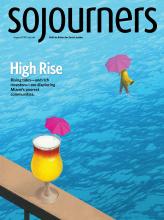IN MINNESOTA, Alec Smith was unable to afford either health insurance premiums or the insulin needed to treat his Type 1 diabetes, despite working full time. He died last year from diabetic ketoacidosis, at age 26. Other young Americans with diabetes have suffered the same fate.
David Bridges of Indiana has health insurance through his job, but a high deductible means he has to pay for his multiple prescriptions out of pocket. One of those prescriptions alone costs $700 a month. He maxes out credit cards to buy what medicine he can, yet still has to skip doses.
These stories represent the status quo of U.S. health care, even with the preservation of the Affordable Care Act. In responding to such gaps, the faith community has traditionally turned to the direct provision of charity health care, a generous hallmark of our traditions for generations. But we cannot stop there.
Read the Full Article

